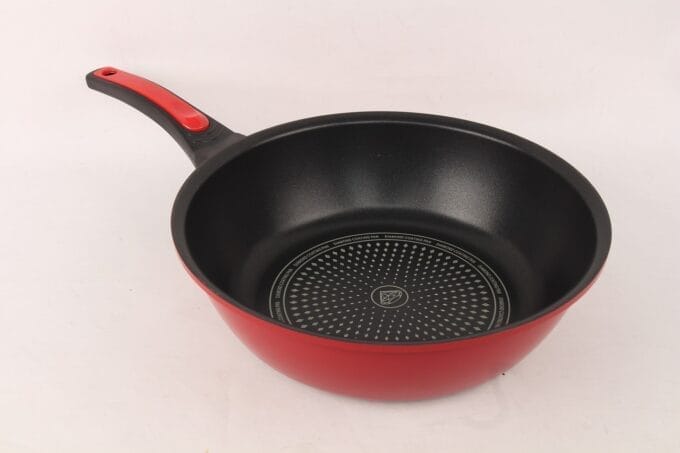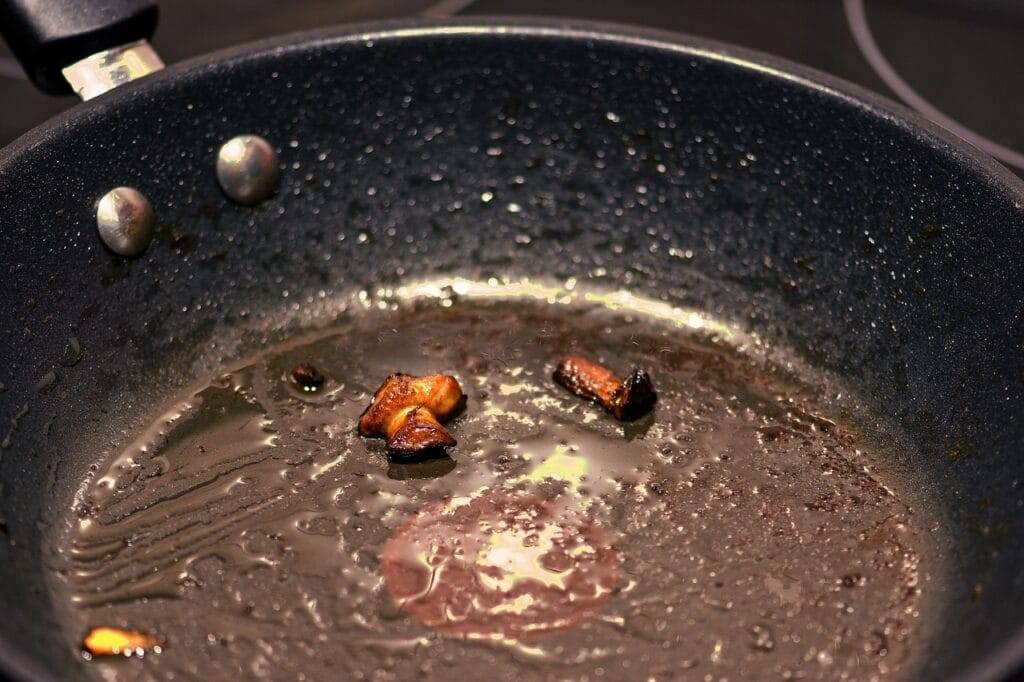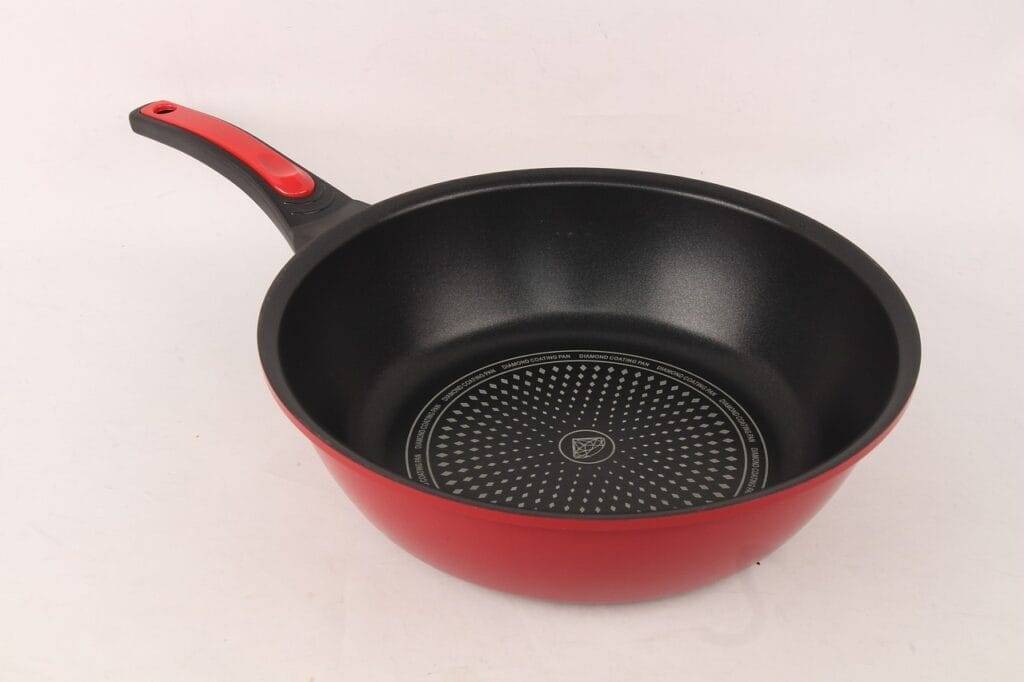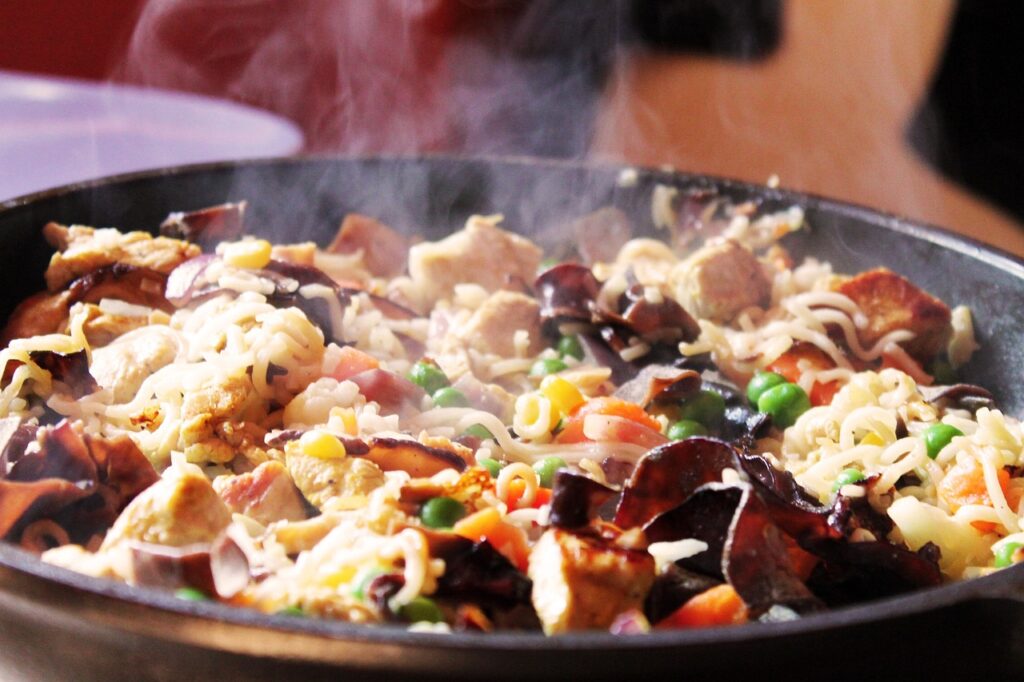How To Clean And Maintain A Frying Pan?

Have you ever found yourself staring at your frying pan, wondering how to keep it in tip-top condition? You’re not alone! Many home cooks ponder the secrets to clean and maintain a frying pan in top condition.
The Importance of a Well-Maintained Frying Pan
How to clean and maintain a fry pan is more than just a piece of cookware; it’s an essential tool in your kitchen arsenal. With proper care, it can last for years, bringing you countless delicious meals. By understanding the importance of maintenance, you can ensure that your frying pan performs well and remains safe for cooking.
Benefits of a Clean Frying Pan
Keeping your frying pan clean offers a multitude of benefits:
- Improved Performance: A clean pan heats evenly, preventing hot spots that can cause uneven cooking.
- Better Food Release: When your pan is free of residue, food is less likely to stick, making cooking and cleaning easier.
- Health and Safety: Regular cleaning removes bacteria and food particles, ensuring that your meals are safe to eat.
- Longevity: Proper maintenance can extend the lifespan of your frying pan, saving you money in the long run.
Types of Frying Pans
Before you dive into cleaning methods, it’s important to identify what type of frying pan you own, as this will dictate the best way to clean and maintain it. These are the types of fry pans that we will discuss today. Learning how to clean and maintain a fry pan will help you to extend the longevity of these pans.
Non-Stick Frying Pans
These pans have a special coating that prevents food from sticking. They are great for low-fat cooking but require gentle care.
Cast Iron Frying Pans
Renowned for their heat retention and even cooking, cast iron pans are a favorite among many cooks. They require a unique cleaning approach to maintain their seasoning.
Stainless Steel Frying Pans
Durable and versatile, stainless steel frying pans are easy to clean and can handle high cooking temperatures.
Copper Frying Pans
Known for their excellent conductivity, copper pans distribute heat evenly. They require gentle cleaning to maintain their shine.
How to Clean Your Frying Pan
Once you know the type of frying pan you have, you can proceed with the cleaning process. Here’s how to tackle it based on the material.
Non-Stick Frying Pan Cleaning
- Let it Cool: Always allow your pan to cool down before you clean it. Sudden temperature changes can warp it.
- Use Warm, Soapy Water: Fill your sink or basin with warm water and add a few drops of dish soap. Use a soft sponge or cloth to gently scrub the surface.
- Rinse Thoroughly: Rinse the pan under warm running water to remove all soap residue.
- Dry Immediately: Use a soft towel to dry your non-stick pan immediately. Avoid air-drying, as it can lead to water spots or damage the coating.
Cast Iron Frying Pan Cleaning
- Avoid Soap: It’s best not to use soap on your cast iron pan, as it can strip the seasoning. Instead, use hot water and a non-abrasive scrubber for tough residue.
- Scrape Off Food: If food is stuck, use a spatula or a stiff brush to remove it.
- Dry Thoroughly: After rinsing, dry your pan completely with a towel or by placing it on low heat on the stove for a few minutes.
- Re-oil the Surface: To maintain the seasoning, apply a thin layer of vegetable oil or each time you clean it. This keeps the surface non-stick and prevents rust.
Stainless Steel Frying Pan Cleaning
- Soak if Needed: For burnt-on food, soak the pan in warm, soapy water for a while before scrubbing.
- Use a Soft Brush or Sponge: Avoid abrasive scrubbers, which can scratch the surface.
- For Tough Stains: Create a paste with baking soda and water. Apply it to the stained area and scrub gently.
- Rinse and Dry: Rinse thoroughly and dry with a soft towel to prevent water spots.
Copper Frying Pan Cleaning
- Use a Specialized Cleaner: Copper pans often require special copper cleaner to maintain their shine.
- Avoid Abrasives: Use a soft cloth to clean the copper and avoid harsh scrubbing pads.
- Rinse Well: Make sure to rinse off all cleaners to avoid a reaction with food later.
- Dry Immediately: Use a soft cloth to dry your copper pan thoroughly.
The Do’s and Don’ts of Frying Pan Maintenance
Knowing how to care for your frying pan is just as important as cleaning it. Here’s a handy guide to ensure you’re doing it right.
| Do’s | Don’ts |
|---|---|
| Use proper utensils like silicone or wood | Use metal utensils that can scratch the surface |
| Clean after each use | Leave food residue in the pan |
| Store your pan properly | Stack heavy items on top of it |
| Periodically re-season (for cast iron) | Soak cast iron pans for long periods of time |
| Use moderate heat | Overheat non-stick pans |

Storing Your Frying Pan
Proper storage plays a crucial role in maintaining your frying pan’s quality. Here are a few tips for storing your frying pans correctly:
Hanging Storage
If you have limited cabinet space, consider hanging your frying pans. This keeps them easily accessible and can be a stylish kitchen feature.
Nesting with Care
If you choose to store your pans in a stack, place a soft cloth or paper towel between them. This prevents scratches and protects the cooking surface from damage.
Avoiding Extreme Temperatures
Keep your pans away from extreme heat or cold. Storing non-stick pans near an oven or in a cold basement can shorten their lifespan.
Troubleshooting Common Frying Pan Issues
Even with the best care, you may encounter some issues. Here’s how to troubleshoot common problems with your frying pan.
Food Sticking to Non-Stick Pans
If you find that your food is sticking to your non-stick surface, it may be time to replace your pan or re-season it, if applicable.
Rust on Cast Iron
Rust can develop if your cast iron pan is not dried properly. Scrub away the rust, then re-season the pan to restore its surface.
Discoloration in Stainless Steel
Discoloration is typical with stainless steel, particularly after high-heat cooking. You can often remove this by applying baking soda paste or using vinegar.
Tarnished Copper
Tarnish on copper pans can usually be remedied with a copper cleaner or a mixture of lemon juice and baking soda.

The Role of Seasoning
When it comes to frying pans, especially cast iron, seasoning is a crucial part of maintenance. It creates a natural, non-stick surface that improves with use. Here’s how to season your frying pan.
How to Season a Cast Iron Frying Pan
- Clean the Pan: Start with a clean pan. Use hot water to remove any rust or old seasoning.
- Apply Oil: Coat the entire surface with a thin layer of vegetable oil or flaxseed oil.
- Bake: Place the pan upside down in a preheated oven (about 375°F) for one hour. This allows the oil to bind to the metal.
- Cool and Repeat: Let the pan cool in the oven before repeating this process a few times for optimal seasoning.
When to Replace Your Frying Pan
Even with the best care, frying pans have a lifespan. Here are telltale signs that it may be time to say goodbye to your beloved pan:
Non-Stick Coating Peeling
If the non-stick coating is peeling, it’s time to replace the pan. Consuming flakes of coating is not safe.
Deep Scratches on Stainless Steel
If your stainless steel pan is scratched deeply, it can harbor bacteria and may warp, making it less safe and effective for cooking.
Rust Damage
For cast iron, if rust penetrates too deeply and is unmanageable through cleaning and re-seasoning, it may be best to replace it.
Final Tips for Frying Pan Longevity
Maintaining a frying pan doesn’t have to be a tedious chore. Here are some final tips to ensure your pans serve you well for years to come:
- Regular Check-ups: Take a moment to inspect your pans after each use. Look for scratches, stains, or rust.
- Cook with Care: Avoid extreme temperatures and sudden changes, which can warp your pan.
- Invest in Quality: Higher-quality pans may require more upfront investment, but they often last longer and perform better.
By embracing these cleaning and maintenance habits, you can keep your frying pan in superb condition, ready for any culinary challenge. If you take good care of it, your frying pan can become a cherished tool in your kitchen, serving you perfectly for a long time!

